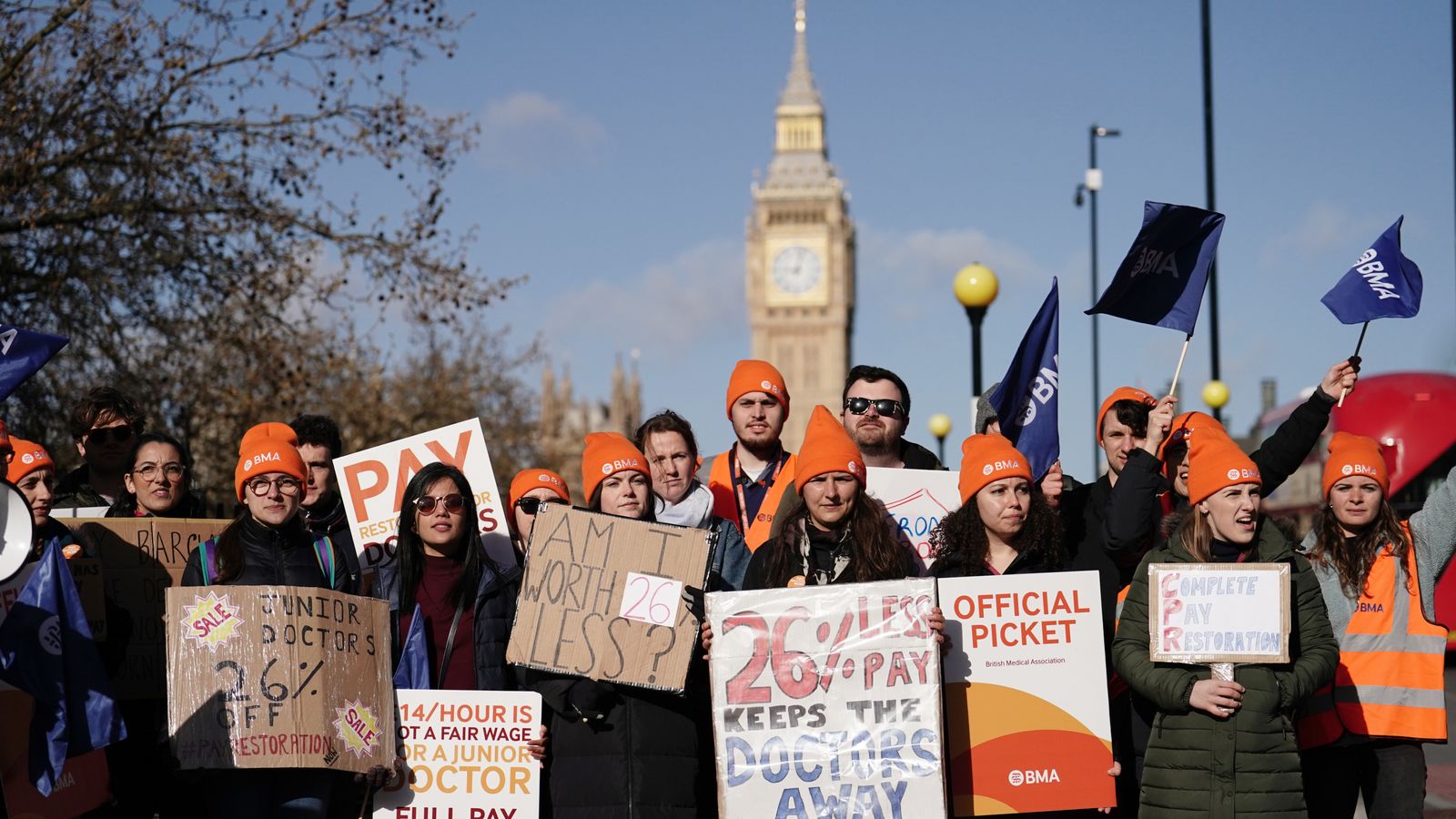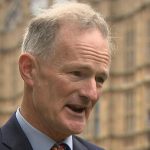“All options are on the table” regarding possible coordinated strikes by junior doctors and nurses, a union representative has warned.
Dr Arjan Singh, chair of the British Medical Association’s (BMA) junior doctors committee, refused to rule out the possibility of coordinating industrial action with Royal College of Nursing (RCN), saying: “We have a very close relationship with the RCN and every option is to be considered.”
He told Sky News the BMA is “in full solidarity with nursing colleagues”, after the RCN voted for a fresh 48-hour walkout from 8pm on 30 April to 8pm on 2 May.
Dr Singh called the government’s pay offer to the nurses “derisory” and “not reflective of years of pay erosion that they have endured or the sacrifices they’ve made”.
Sir Julian Hartley, chief executive of NHS Providers, said a coordinated strike would be “completely unprecedented”.
“We would be in uncharted territory,” he told Sky News. “It would be even more challenging to plan for, manage and mitigate all the enormous challenges it would present the service with.
“Doctors and nurses are fundamental to the delivery of care across the service. It really is deeply concerning if that’s the scenario we’re facing.”
Royal College of Nursing votes for new strike – as some junior doctors call for coordinated walkouts
Junior doctors strike: Health secretary ‘willing to engage’ with medics but 35% pay rise demand ‘unreasonable’
NHS waiting list hits all-time high – with one in 10 waiting 12 hours in A&E
‘Desperate need’ to end strikes
Sir Julian said the NHS was in “desperate need” of an end to strike action.
“We need both the government and unions to come together quickly to try and find a way through this,” he added.
The RCN strike comes after a 54% vote to reject an offer of a 5% pay rise this year and a cash payment for last year.
Staff in emergency departments, intensive care units and cancer care are expected to take action for the first time.
But members of a second union, Unison, voted to accept the same offer by 74% on a turnout of 53%.
Please use Chrome browser for a more accessible video player
Health correspondent
It’s not a good news, bad news type of situation – it’s a mess. By rejecting the government’s pay offer, nurses from the RCN are now in conflict with their health worker colleagues from Unison, who have overwhelmingly decided to accept it.
At the start of the process, the unions warned that the government was playing a dangerous game of divide and rule. Now they have managed to do it to themselves.
Other health unions including the GMB, Unite and those representing physios and dieticians are consulting their members. They have until 28 April.
Until then, we are in limbo. In early May, all the unions will go back to the government with their decision. Unison has said it will ask the government to impose its pay deal on their members.
But the RCN has already announced further strike dates and will ballot its members for more action over the last six months of the year.
It raises the prospect of nurses and junior doctors standing together on picket lines for the first time. That is a situation that will fill NHS Trust leaders with dread.
The outcome will not be known until at least May. It means more uncertainty for long-suffering patients.
Junior doctors await ‘credible offer’
Around 47,000 junior doctors finished their four-day strike in a separate dispute over pay at 7am on Saturday.
The BMA has urged the government to hold talks over junior doctors’ demands for “pay restoration” to 2008 levels, but ministers have claimed that would amount to a 35% pay rise.
Dr Singh accused Health Secretary Steve Barclay of “hiding” behind pre-recorded media interviews.
“We said, ‘give us a credible offer, and we would call off the strikes’,” he said.
“But radio silence is what we’re hearing from our health secretary at the moment, and it’s very concerning.”
A “mass haemorrhaging and exodus of doctors” would continue if a “credible offer” was not made, he added.






















